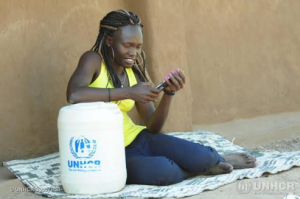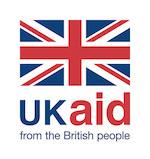 The global population of forcibly displaced persons (FDPs) continues to grow. Uganda is one of the countries with a long history of hosting FDPs. As of late 2019, besides asylum seekers and returnees, Uganda had about 1.38 million refugees living inside its borders. To ensure that these refugees integrate, humanitarian organisations, the United Nations Refugee Agency (UNHCR) and the private sector actors like mobile network operators (MNOs) have been exploring durable solutions to the challenges that such refugees face. Although mobile connectivity is not a sole remedy to the challenges, evidence shows that access to connectivity could improve lives of refugees in Uganda. Considering Uganda is one of the countries that impose mandatory proof of identity requirements for individuals wishing to activate mobile Subscriber Identity Module (SIM) enabled services in their own name, the refugees often find it difficult to meet the Know Your Customer (KYC) requirements. In the first half of 2019, inspired by its mission to accelerate the delivery and impact of digital humanitarian assistance, the GSMA Mobile for Humanitarian Innovation (M4H) programme partnered with the UNHCR and embarked on a joint effort to explore how access to SIM enabled services could be eased for refugees living in Uganda. With the support of MNOs operating in Uganda, the Office of the Prime Minister and insights from UNCDF, these advocacy efforts resulted in the Government of Uganda adopting a more proportionate and enabling policy related to proof of identity for mobile access. The Uganda Communications Commission’s new regulatory order on SIM cards registration for refugees outlines that:
The global population of forcibly displaced persons (FDPs) continues to grow. Uganda is one of the countries with a long history of hosting FDPs. As of late 2019, besides asylum seekers and returnees, Uganda had about 1.38 million refugees living inside its borders. To ensure that these refugees integrate, humanitarian organisations, the United Nations Refugee Agency (UNHCR) and the private sector actors like mobile network operators (MNOs) have been exploring durable solutions to the challenges that such refugees face. Although mobile connectivity is not a sole remedy to the challenges, evidence shows that access to connectivity could improve lives of refugees in Uganda. Considering Uganda is one of the countries that impose mandatory proof of identity requirements for individuals wishing to activate mobile Subscriber Identity Module (SIM) enabled services in their own name, the refugees often find it difficult to meet the Know Your Customer (KYC) requirements. In the first half of 2019, inspired by its mission to accelerate the delivery and impact of digital humanitarian assistance, the GSMA Mobile for Humanitarian Innovation (M4H) programme partnered with the UNHCR and embarked on a joint effort to explore how access to SIM enabled services could be eased for refugees living in Uganda. With the support of MNOs operating in Uganda, the Office of the Prime Minister and insights from UNCDF, these advocacy efforts resulted in the Government of Uganda adopting a more proportionate and enabling policy related to proof of identity for mobile access. The Uganda Communications Commission’s new regulatory order on SIM cards registration for refugees outlines that:
- Mobile SIM cards can be registered in the name of a refugee who holds a valid refugee ID card issued by the Office of the Prime Minister.
- In the absence of the refugee ID, a valid attestation letter issued by the Office of the Prime Minister suffices.
- However, during SIM registration the personal data appearing on the refugee ID or the attestation letter need to be accurately captured by the MNOs or their agents for either a new SIM, a SIM swap or a SIM replacement.
Our latest report details the policy environment prior to change, the series of steps and events that culminated in the policy shift, the actors and their roles, the success factors and the impact that the change has had on the lives of refugees in Uganda. Worthy to highlight is that the policy change impacts on the lives of about 600,000 refugees and represents a profound shift in SIM registration regulation that should be of interest to any policy practitioner or regulator striving for an enabling regulation which supports digital inclusion as a public policy without imposing undue compliance costs particularly on the marginalised, the unserved and the underserved.



